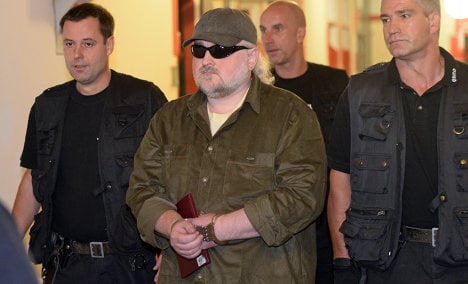He is suspected of seducing her with flirty text messages before tying the Swiss woman to a tree and suffocating her. Her body was not found for four years.
Gabor Sprungk, 42, has been in prison since February 2010 for murdering a 74-year-old woman and her doctor, 63, in 2008. He killed them to get the woman’s debit card and the doctor’s car which they were in at the time.
He is now suspected of murdering 47-year-old Maria K. in 2007 – a year after the double murder.
According to the Bild newspaper, the pair had met online and exchanged flirtatious text messages for months before the mother-of-one agreed to come to Germany to meet then 36-year-old Sprungk.
Maria K. sent him a photo knowing nothing of his past crimes. He then replied: “You’re a really nice woman. I’m looking for a woman who I can talk to and who understands me,” the Bild reported.
The prosecution said they believed that between July 23rd and 24th 2007, Sprungk went to pick her up from Switzerland, but on the way back he pulled over in a remote forest near Mansfeld, where he lived in central Germany, tied her to a tree and killed her.
State prosecutor Hendrik Weber told the judge that Sprungk likely suffocated the women with a plastic bag over her head before dumping her in the Rhine river. The defendant denies that he murdered her.
Sprungk was found to have had Maria K.’s money, credit card, ID and house keys in his possession. When her body was discovered in the Rhine in 2011, she was identified via DNA tests.
If found guilty, the suspect could face another life sentence – 15 years – on top of the sentence he is already serving. The hearing is expected to last until mid-October.
DPA/The Local/tsb/jcw



 Please whitelist us to continue reading.
Please whitelist us to continue reading.
Member comments